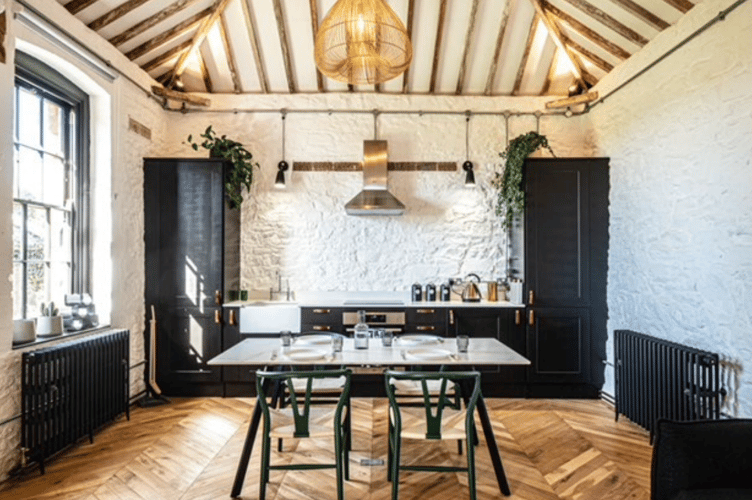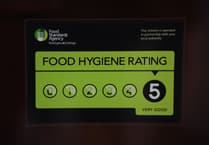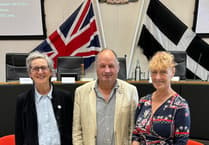A UNIQUE heritage site in Cornwall, which has become home to a thriving community of musicians, artists and makers, is at the heart of a planning row. A private company wants to change the use of one of the historic buildings to residential and commercial use, with a number of locals fearing it could set a precedent for second homes at Maker Heights on the Rame Peninsula.
A former military site which played an important role in the defence of Plymouth from the late 18th century, the site contains five scheduled monuments, 17 Grade II* listed buildings and is situated in the protected Rame Head area of the Cornwall National Landscape.
Since the early 1990s, Maker has been home to a thriving community of creatives, musicians, artisans and makers, and a popular campsite. Today, Maker’s creative activity is centred around the Barrack Block, which contains 22 affordable studio spaces, including a vibrant music venue and gallery.
Rame Conservation Trust (RCT), a registered charity, was formed in 1997 to protect and promote the heritage assets at Maker Heights for public benefit. Other parts of the site, including a number of outbuildings surrounding the Barrack Block and some adjacent land, are owned and managed by a private company, Evolving Places Ltd, which also runs the Seaforts Glamping site.
Evolving Places has now submitted a part-retrospective planning application with Cornwall Council to change one of these buildings, the Straw Store, which has already been used as an Airbnb, into residential use which it says will help with the financial upkeep of the site. However, local residents, other users of the site and the RCT are not happy, believing that Maker Heights is wholly unsuitable for residential properties.
The application has currently received almost 30 letters of opposition from concerned residents of the area. One wrote: “Maker Heights is simply not a suitable place for permanent residential development. The site currently plays a vital role in the community, offering educational, cultural and artistic spaces that thrive because of its non-residential character. It sits within an Area of Outstanding Natural Beauty and any shift in use risks undermining both its environmental and historical value.
“Importantly, Maker Heights is one of the last remaining heritage landscapes on the Rame Peninsula that is still publicly accessible to both locals and visitors. Generations of families – mine included – have enjoyed this place for over four generations. The proposed plan threatens to take that away, replacing a shared community resource with private dwellings. What has long been a place of open exploration, learning and creativity would be permanently changed, possibly lost.”
They added: “Many of us remember that Evolving Places originally envisioned multiple residential units on this site and approving this change would set a dangerous precedent for further conversions. If, as stated, the developer is looking to recoup financial investment, there is every reason to believe that these units would be sold as second homes, which would serve no benefit to the local community.”

Another local said: “We already have a second homes crisis in Cornwall, particularly on the Rame Peninsula. It’s disappointing (but not unexpected) to see that this hasn’t been considered by the developer, who is rarely on site, and doesn’t live locally. They will be well aware of the risk this poses to the adjacent music venue (Patchwork Studios, the only grassroots music venue on the Rame Peninsula) and tenants who use their spaces for band practice flexibly throughout the day and evening – this is what the site is intended for.
“I urge Cornwall Council to reject this application in order to protect the integrity of Maker Heights and support the continued success of its community-led model.”
RCT has also objected to new private residential uses created on site. It stated: “Given its position adjacent to public areas and businesses, we do not agree that private residential use of the Straw Store is compatible. From a heritage perspective, we would also maintain that this location is wholly unsuitable for residential use, likely to permanently change the visual and historic character of the courtyard. We would, however, support continued use as a studio – it has recently been used as a wellbeing space.”
The trust added that it was concerned that “the Straw Store would be sold as a private residential dwelling”.
In a supporting design and planning statement, the applicant said that during the last eight years of ownership Evolving Places has invested “a significant amount of money in the fabric of the site, clearing, maintaining, restoring and caring for the buildings, land and monuments.
“One of the buildings with significant potential to deliver some much-needed income was the Straw Store. Over the last two years, since its restoration, this building has been used alongside a traditional holiday let as a workspace, a meeting space, honeymoon suite, photography studio, writers’ retreat, a place for restoring balance to people’s lives as they recover from bereavement, a place where dissertations have been written, and even as accommodation for performers at the Patchwork Studios.
“All these uses are accommodated under the sought change of use class to C3 and E. Some of these works are now the subject of this, in part, retrospective planning and listed building application”.
The planning statement added that the land and buildings Evolving Places owns “desperately need a significant injection of capital to stand any chance of bringing any more buildings back to life. Supporting this application will help reduce the conservation deficit and in turn reduce the pressure for enabling development”.
The company said that later this year / early next it will release a pre-application submission which sets out a “viable, sustainable, phased solution for the site which will support its restoration and growth to develop year-round life and opportunity at Maker”.
It added: “This application does not seek to solve the larger issue looming, it seeks to regularise a really important cog in the wheel, being the ability the Straw Store has to generate income from its use as a residential or commercial building.”
The plans can be viewed using reference PA24/02695.





Comments
This article has no comments yet. Be the first to leave a comment.